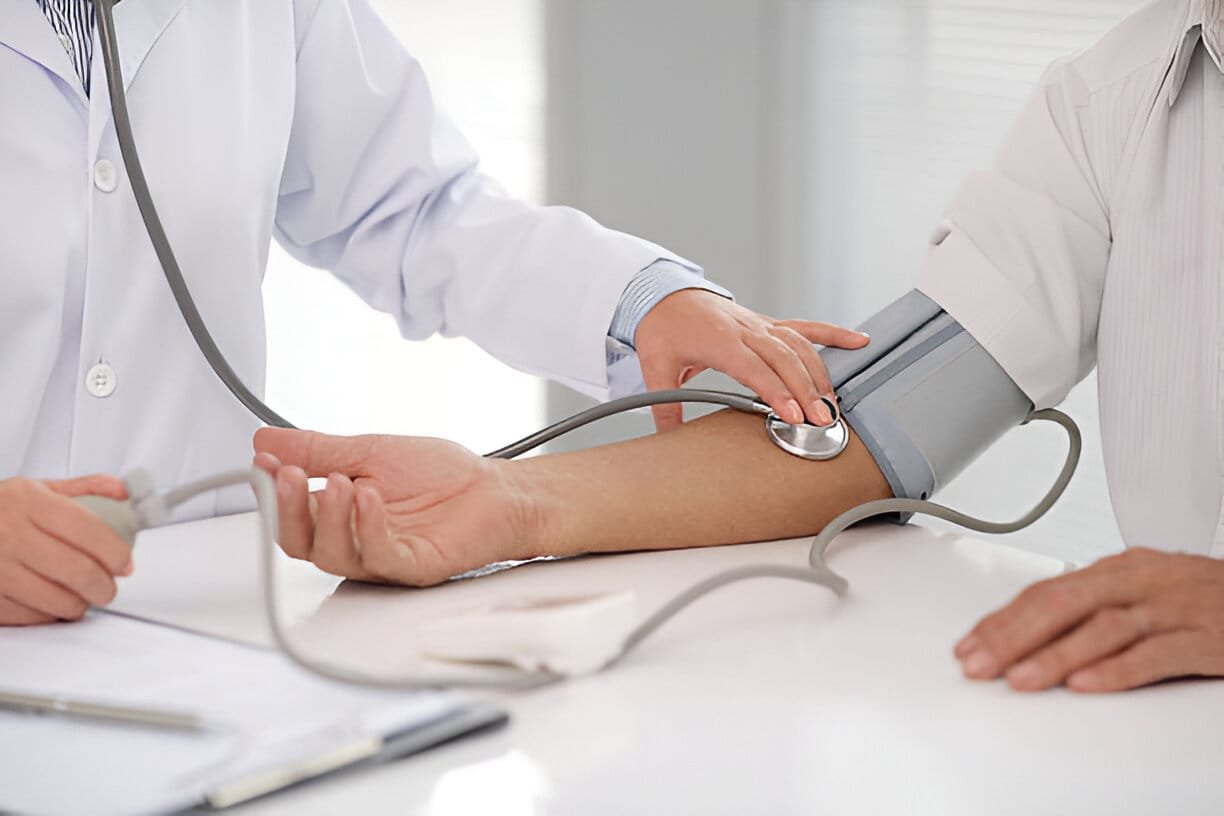Cardiac Care, Expert Advice

It is referred to as the “silent killer” because it can silently co-exist without any apparent symptoms while severely damaging the body. High blood pressure, or hypertension, is a particularly pressing risk in the lives of men because of lifestyle factors, genetics, and a tendency to underplay the early warning signs that could alert them. In most cases, men do not know they have hypertension until it has reached a later stage.
This blog talks about the complexities of hypertension in men, exploring its causes, symptoms, risks, and treatments. We’ll also address common questions such as, “Can high BP be reversed?” and “What can be done to prevent hypertension?”
Blood pressure is the force exerted by blood against the walls of your arteries as the heart pumps it through your body. There are two numbers for blood pressure: systolic and diastolic. The systolic reading is the difficulty of the work that the arteries must work against when the heart beats, while diastolic is the pressure between the beats when the heart rests. Hypertension is a persistent elevation of the pressure in the arteries from the blood.
The blood pressure of normal person is usually around 120/80 mmHg. However, when these numbers are consistently elevated, such as 150/90 blood pressure or 140/80 blood pressure, it indicates hypertension. In men, this condition often goes undiagnosed until complications arise, which is why regular check-ups are essential.
The normal bp range for men is generally between 90/60 mmHg and 120/80 mmHg. Blood pressure readings are classified as follows:
For men, keeping blood pressure within the normal blood pressure range for men is crucial for maintaining heart and overall health. Readings like 130/90 bp and above should be monitored closely.

Most men do not display any apparent hypertension symptoms, but some do. Most such reports detect these symptoms that are commonly overlooked or believed to be side effects resulting from other diseases. Some symptoms of high BP in males observed include:
Hypertension is a very dangerous disease because it may manifest when the condition becomes severe. Thus, it’s crucial to get frequent follow-ups with one’s blood pressure level.
Causes of hypertension in men include several causes. Some might be lifestyle habits, while others might be genetic predispositions genetically. Knowing what is causing it can help them prevent its onset.
The young fellows should be aware of the causes of young hypertension. The cause of this disease mostly is due to obesity, excessive alcohol use, and an inactive lifestyle. Whatever the reason might be, hypertension in young adults is turning out to be a common disease because of these lifestyles.
Many risk factors increase the chances of having high blood pressure, but several are modifiable through lifestyle adjustments, whereas others are not.
If left unattended, we could observe a variety of hypertension complications:
Many men ask, can high BP be reversed? The answer depends on how early the condition is detected and how diligent the patient is in making necessary lifestyle changes.
High blood pressure treatment typically involves a combination of lifestyle adjustments and medications. Doctors may prescribe antihypertensive drugs to lower blood pressure while advising patients to reduce salt intake, exercise regularly, and manage stress.
The best way to deal with hypertension is to prevent it from developing in the first place. Here are some tips on how to prevent hypertension:

Millions of men worldwide suffer from the devastating illness known as hypertension. Though it is a silent killer, the good news is that it is preventable and curable with the right kind of lifestyle choice and medical intervention. Understanding the causes and identifying symptoms as early as possible can help reduce the risk in men and maybe even avoid hypertension complications such as heart disease and stroke.
At Atrius Cardiac Care, we truly care about helping men take control of their heart health. Our in-depth screenings with personalised care and state-of-the-art treatment solutions set us up well to prevent and effectively manage high blood pressure for anyone at risk or with a confirmed diagnosis.